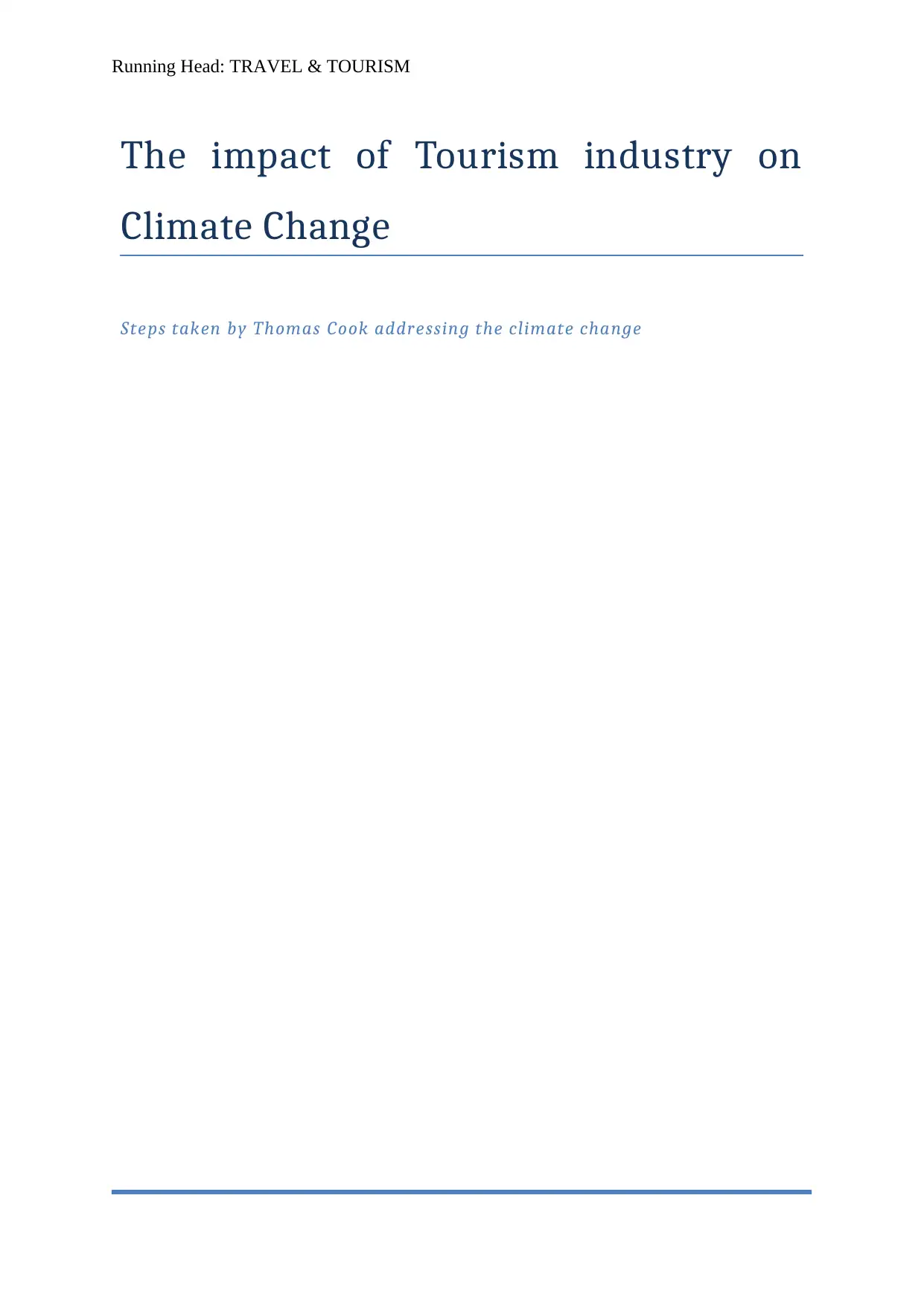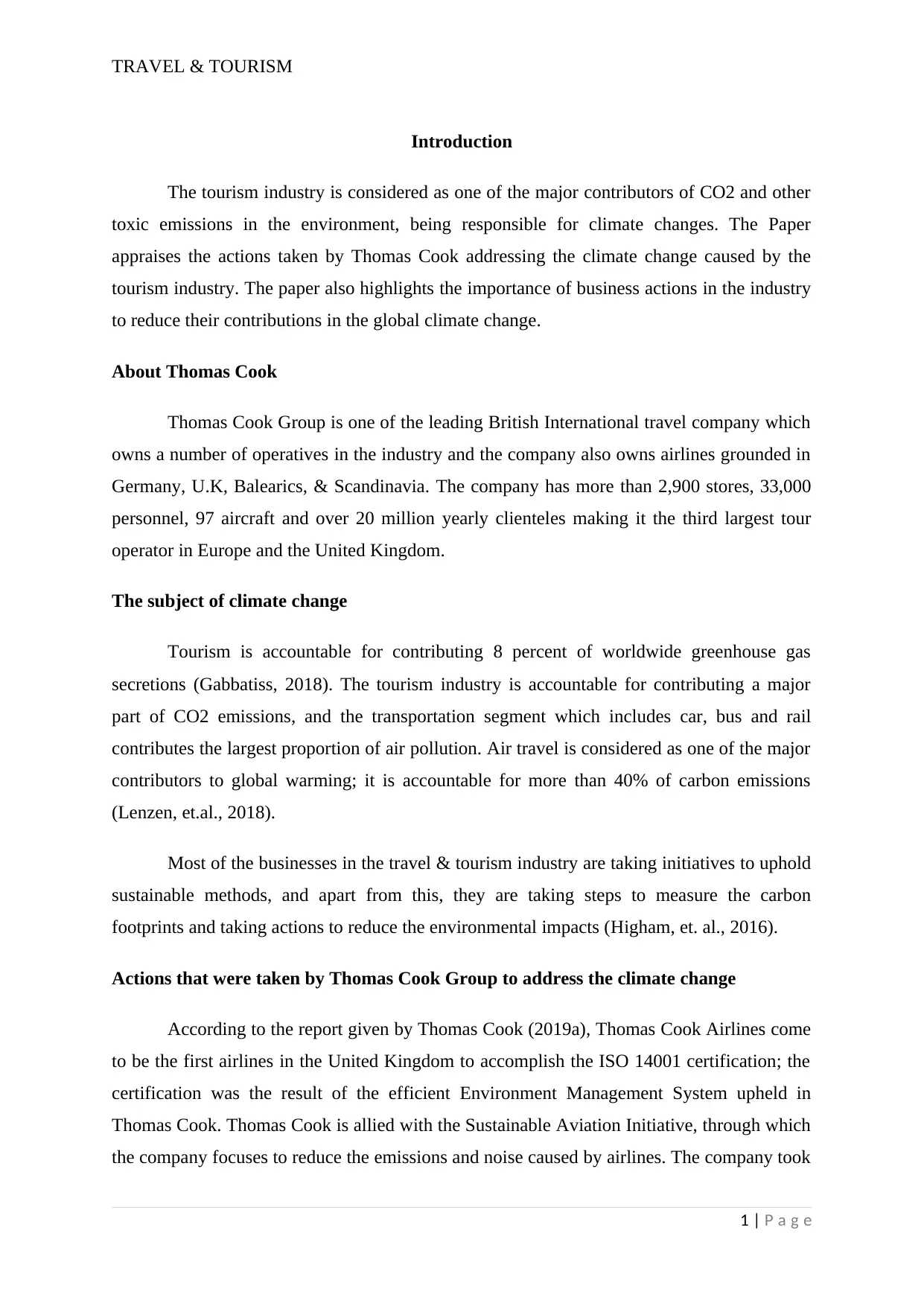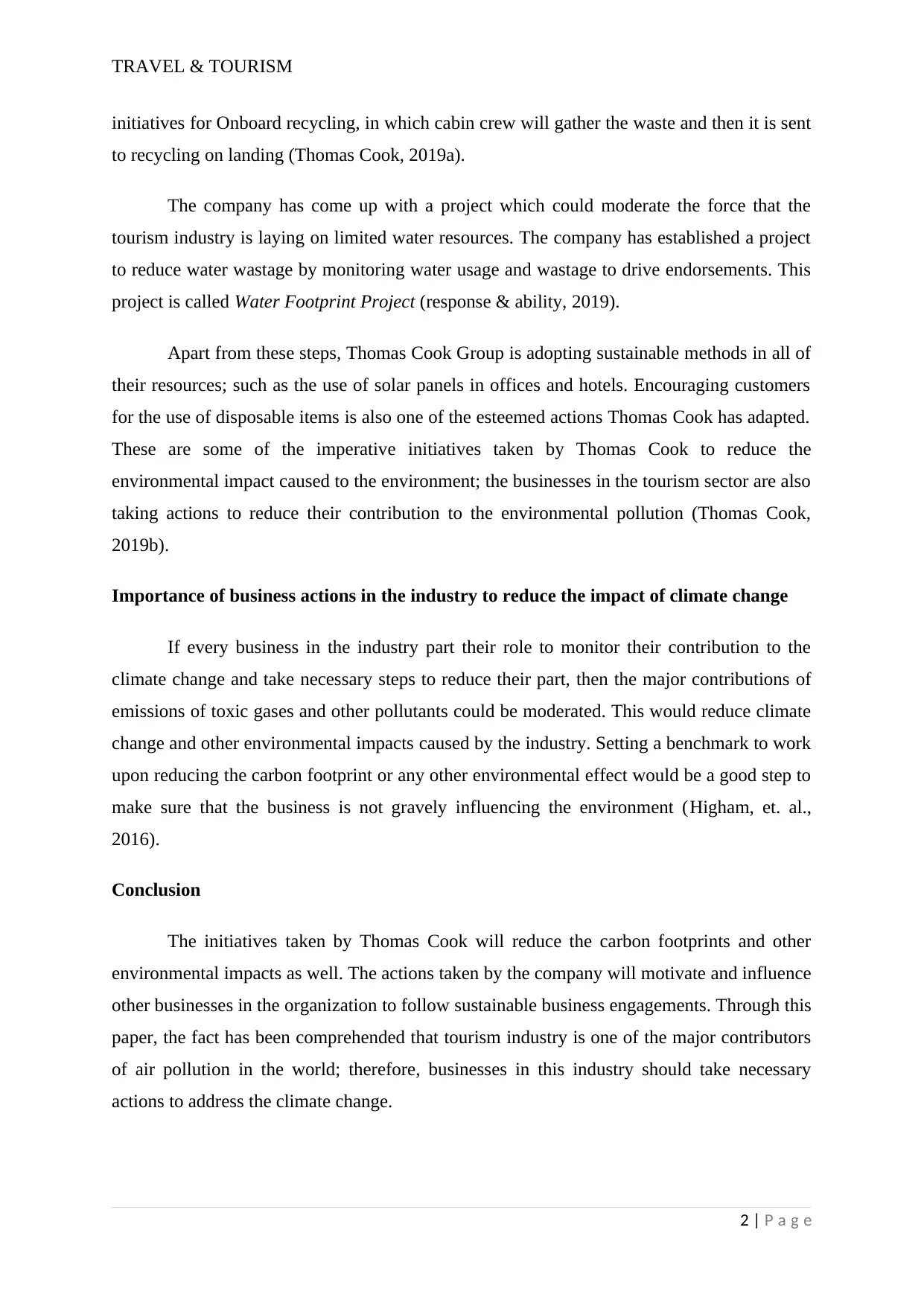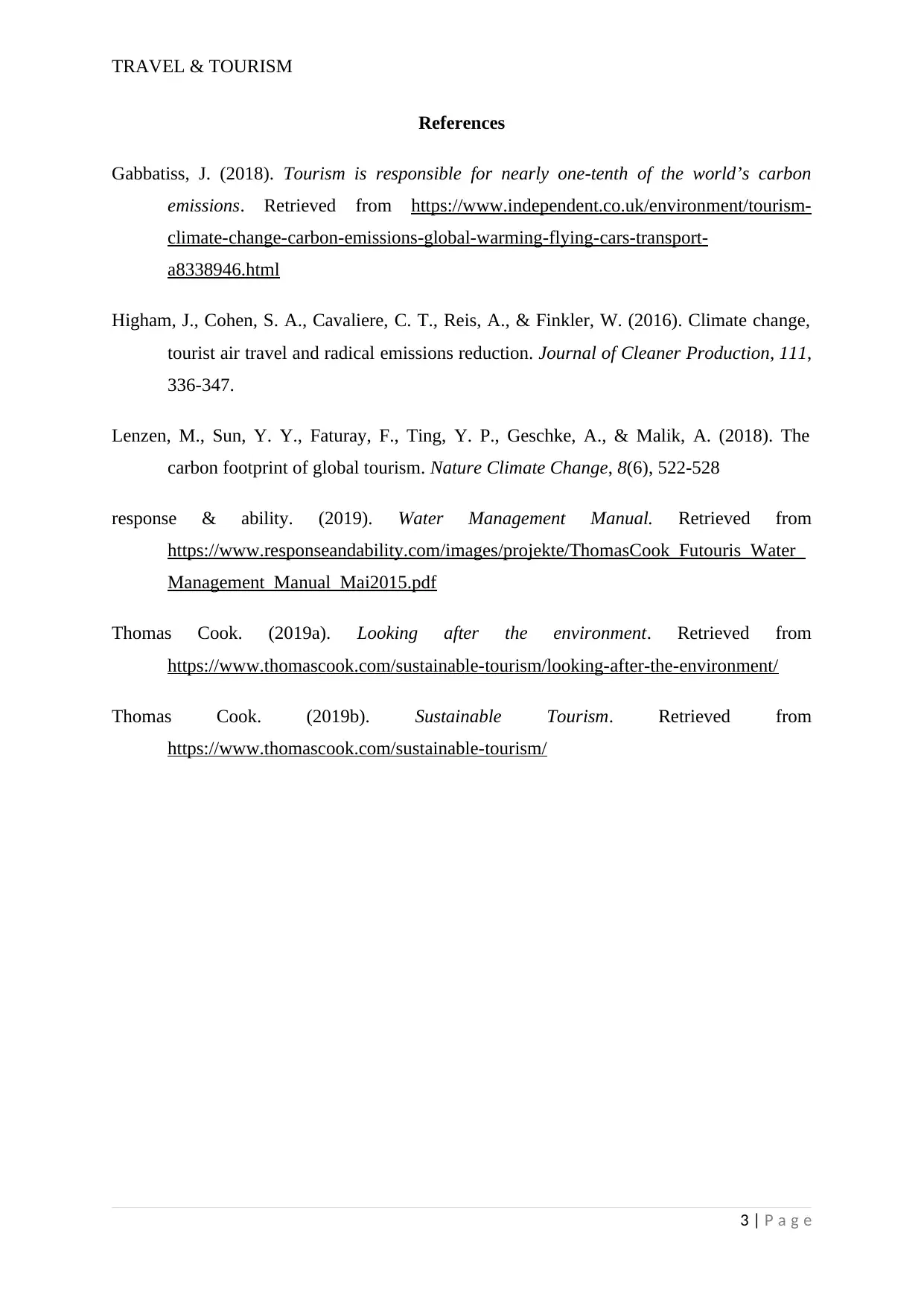Evaluating Thomas Cook's Strategy for Climate Change in Tourism
VerifiedAdded on 2023/04/21
|4
|956
|451
Essay
AI Summary
This essay examines the tourism industry's significant contribution to climate change, focusing on the initiatives taken by Thomas Cook Group to mitigate its environmental impact. It highlights Thomas Cook's efforts, such as achieving ISO 14001 certification for its airlines, partnering with the Sustainable Aviation Initiative, implementing onboard recycling programs, and launching the Water Footprint Project to reduce water wastage. The essay also emphasizes the importance of business actions within the tourism sector to reduce carbon footprints and promote sustainable practices, ultimately contributing to the reduction of toxic emissions and pollutants. The conclusion underscores that the initiatives taken by Thomas Cook can motivate other businesses to adopt sustainable engagements, addressing the critical need for environmental responsibility within the tourism industry. Desklib offers a variety of resources, including similar essays and study tools, to aid students in their academic pursuits.
1 out of 4











![[object Object]](/_next/static/media/star-bottom.7253800d.svg)